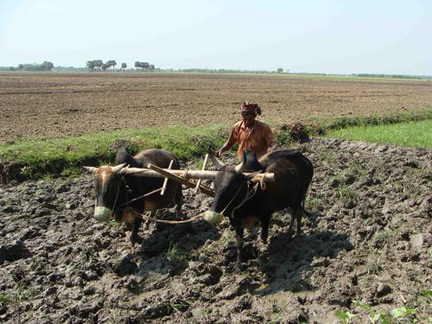Impact of trade policy on poverty
Geneva: A novel collaborative approach between academics and
policymakers examines the impact of trade policy on poor people in eight
developing and transition countries in a new book published by UNCTAD.
 Trade Policies, Household Welfare and Poverty Alleviation: Case
Studies from the Virtual Institute Academic Network is the outcome of a
three-year capacity-building project for researchers in developing and
transition countries. Trade Policies, Household Welfare and Poverty Alleviation: Case
Studies from the Virtual Institute Academic Network is the outcome of a
three-year capacity-building project for researchers in developing and
transition countries.
The findings of the project will be presented by the authors and
their policymaker partners to government representatives in Geneva
during the Virtual Institute's Seminar on Trade and Poverty which begins
tomorrow.
The book takes the form of eight case studies from the Philippines,
the Former Yugoslav Republic of Macedonia, Argentina, China, Costa Rica,
Peru, Nigeria and Vietnam.
The studies address the relationship between globalisation and
poverty in the context of two broad themes.
One set of studies examines the welfare consequences of the recent
increases in global food prices. The other set of studies examines the
welfare effects of trade policy and exchange rate changes.
The researchers used a methodology based on household-level surveys
to assess short-term effects of global price changes or trade policies
on household consumption, production and labour income and subsequently,
on household welfare and poverty.
The country studies are based on actual situations faced by
developing countries, such as recent increases of global food prices, a
change in import tariffs or exchange rate appreciation.
"The research yielded several insights about the relationship between
changes in commodity prices or trade policies and poverty," the book's
editor, a Professor of Economics at Dartmouth College, Nina Pavcnik
said.
"For example, while the rural poor, tend to be harmed by increases in
the price of rice in the Philippines, they benefit from an increased
price of maize in the former Yugoslav Republic of Macedonia. This
difference stems from the fact that the rural
poor in the Philippines tend to be net consumers of rice, while the
rural poor in the former Yugoslav Republic of Macedonia are net
producers of the commodity that experienced a large price increase. Such
assessments can provide a useful tool to help policymakers enhance the
potential positive impact of trade on poverty."
The trade and poverty project from which the book emerged began with
a 12-week online course developed specifically for researchers and
university lecturers from developing and transition countries, to
provide participants with the empirical tools needed to assess the
impact of trade and trade-related policies on poverty and income
distribution so that they may assist
policymakers in the design of pro-poor trade policies.
The UNCTAD Virtual Institute is a capacity-building and networking
program for academic institutions. It aims at helping them strengthen
their teaching and research capacity in the area of trade, investment
and development and increase the policy orientation and relevance of
their work.
The Virtual Institute trade and poverty project was co-funded by the
United Nations Department of Economic and Social Affairs and the
government of Finland.
|

